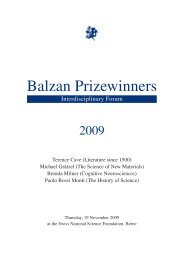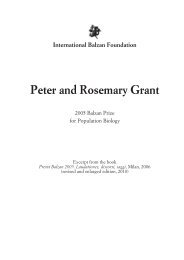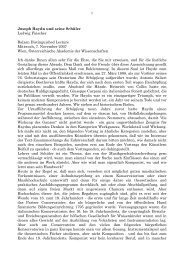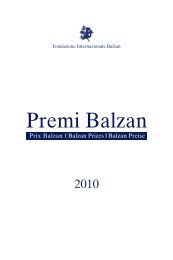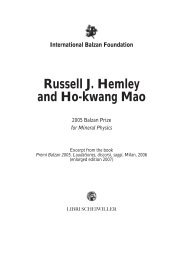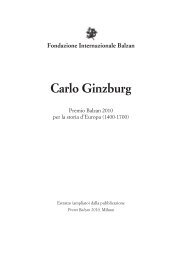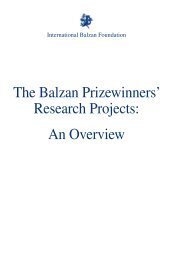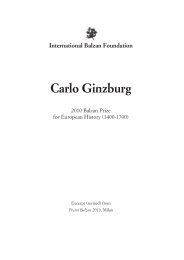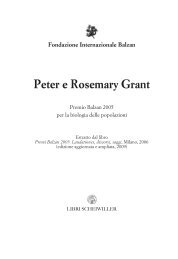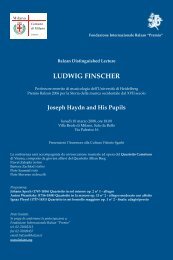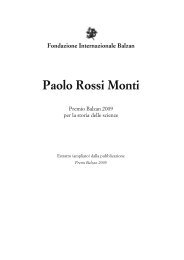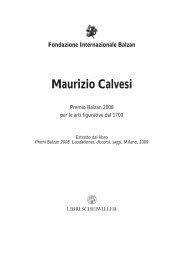International Balzan Foundation Luigi Luca Cavalli
International Balzan Foundation Luigi Luca Cavalli
International Balzan Foundation Luigi Luca Cavalli
Create successful ePaper yourself
Turn your PDF publications into a flip-book with our unique Google optimized e-Paper software.
Are there Limits to Knowledge?<br />
by <strong>Luigi</strong> <strong>Luca</strong> <strong>Cavalli</strong>-Sforza<br />
ForMem RS, Geneticist, Stanford University<br />
<strong>Balzan</strong> Symposium 2002<br />
MEETING THE CHALLENGES OF THE FUTURE<br />
A Discussion between “The Two Cultures”<br />
Royal Society, London; 13 May 2002<br />
<strong>Luigi</strong> <strong>Luca</strong> <strong>Cavalli</strong>-Sforza<br />
On one hand, I resent even this question being asked. It looks like an attempt at<br />
trying to limit my freedom of inquiry. It reminds me of the Great Inquisition, the<br />
condemnation of Galileo. Is someone trying to decide what I am allowed to<br />
learn and what I should not even try to learn? In a totally different perspective,<br />
it reminds me of the irrepressible impression of ignorance which every honest<br />
scientist feels when comparing the extent of what we know and what we don’t<br />
know in our own field of knowledge. On a less emotional footing, there is, of<br />
course, Heisenberg’s principle of indetermination. But all the innumerable attempts<br />
at applying it out of context are probably unacceptable. Nevertheless,<br />
we might wonder how many other comparable principles exist in other fields,<br />
ones that we have violated out of ignorance. I find it more interesting, however,<br />
to take a wholly pragmatic approach, and ask: what are the practical limits to<br />
knowledge? Here I find many real limitations.<br />
I find at least three important limits to knowledge. The first and most serious<br />
one is the ambiguity of language. Almost every word has, in most languages, an<br />
enormous variety of meanings. English probably has the greatest number of<br />
words of all languages. This would seem to guarantee that it is closer to an ideal<br />
situation, that there is only one meaning for each word, but the opposite is true.<br />
I know of no statistics, but I suspect that English also has the greatest number<br />
of meanings for each word. We think we are clear when we explain things, and<br />
that we understand what other people tell us. The expectation is usually correct<br />
in most real instances, but I suspect that it loses meaning when we approach<br />
philosophy, where the use of words of a high degree of abstraction is common<br />
and probably increasing. Examples are the verbs ’to be’, ’to exist’, ’to cause’,<br />
and substantives derived from them. It may be because of personal limitations<br />
29



